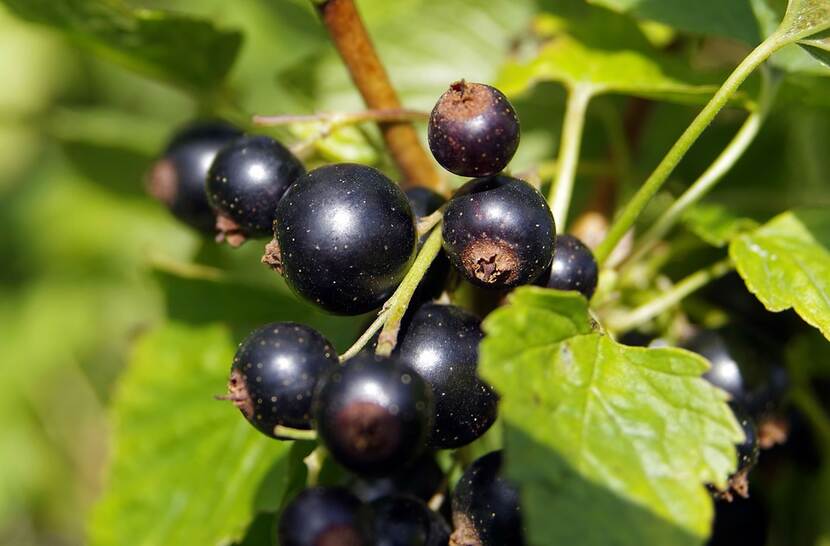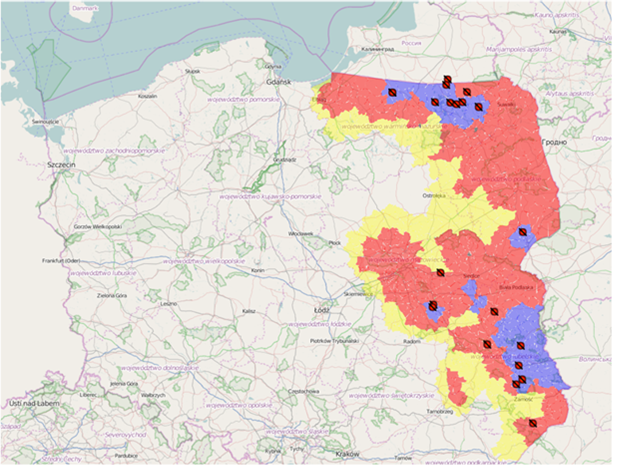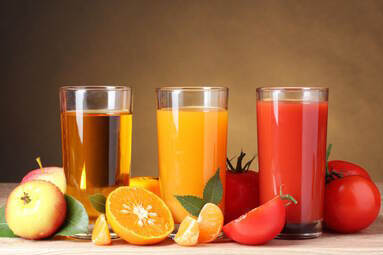Poland, brief agricultural news week 29, 2019
What happened in Poland last week? A brief overview of agricultural news.

Poland: the largest producer of black currant in the EU
Poland is the largest producer of black currant in the EU and the second, after the Russian Federation, producer in the world. They are grown mainly in the Lublin province (south Poland) – according to the date of the National Center for Agricultural Support. The popularity of black currant cultivation in Poland results not only from demand from the processing industry but also from their taste and health properties. Currant berries are characterized by excellent nutritional values. Thanks to the content of mineral salts, pectin and vitamins, they are recommended in the diet of every human being, thanks to the antioxidant content they are valued in health prevention. Experts estimate that approx. 90 % of the volume of black currant is allocated to the needs of the domestic processing industry. Black currants are primarily an excellent raw material for the production of juices, frozen foods, and jams. Black currants are exported to foreign markets primarily in frozen form. In 2018, 45 thousand tons of frozen black currants were exported, which was 36 % of domestic production. Foreign recipients of frozen black currants were mainly: Belarus (16.5 thousand tons, 37% of export volume), Germany (9.8 thousand tons, 22%), Great Britain (4 thousand tons, 9%) and the Netherlands (3.9 thousand tons, 9%).
Source: PAP, Farmer

ASF in Poland: an update
July is a month when more ASF outbreaks in Poland have been reported. In total, 21 ASF outbreaks in 2019 is confirmed. The 20th outbreak occurred in Mazowsze region (the most close to Warsaw) in the so-called red-zone. So, the occurrence of this outbreak will lead to creation of infected and threatened zone within the radius of 10 km. This means that until now in the protection areas (buffer zone, yellow) in the northern direction, the status of the area will change significantly in terms of prohibitions in breeding and moving pigs. There are also other large herds of pigs in the area around the infected farm. On the farm where the outbreak of ASF was reported, procedures related to the elimination of the disease were implemented.
Similarly like last year, summer brings the faster development of ASF outbreaks in pigs. Please see on the map the locations of all ASF outbreaks in Poland as of 2019.
Polish SMEs intend to invest
Representatives of small and medium-sized companies in Poland, which are the majority of all companies operating in Poland, intend to invest in the nearest future. Concluding from the survey carried out by CBM INDICATOR (group of 1210 SMEs) in the second quarter of 2019, 74% of medium and 61% of small enterprises intend to implement investments in 2019-20 2020, while 24% of medium and 39% of small enterprises do not have such plans. Small (96%) and medium-sized (93%) enterprises prefer to finance their activities from their own capital. When it comes to the external sources of financing, SMEs most often use the loan of PLN (zloty) and next source is leasing. Currently, 69% of medium and 58% of small entrepreneurs have used loans. Investment loans are not the most frequently used but checking accounts and debit balance. Investment loans are used only by 23% of medium and 12% of small enterprises. The use of leasing and leasing loans declares 55% of medium and 40% of small businesses. In the nearest future, representatives of SMEs intend to use external capital for both investments and financing of ongoing operations (47% of medium and 42% of small enterprises).
Source: dlahandlu.pl

No VAT increase on nectars
The Finance Commission of the Polish Parliament agreed on amendment to the new VAT matrix in Poland leading to no increase on VAT tax from 5 up to 23 % on beverages with at least 20% of natural juice inside These no increase on VAT tax is a result of strong reaction of fruit processor and producers organizations which have been persuading the government that the initial changes in VAT tax for fruit beverages with less than 100% natural juice inside will have a negative impact for the fruit sector. The aim of the regulator was to support the consumption of beverages with 100% juice inside and with no additives like water or sugar. The problem is that some of beverages from fruits like black currant, cherry, black chokeberry that are sold in Poland are too intense for consumers without those additives. The change would result in total lack of interest for those fruits beverages among consumers and could lead to financial problems for many producers and growers. As orange juice is the most popular among consumers in Poland, the planned change in VAT tax would also support growers of oranges from South of Europe not from Poland.
Source: Puls Biznesu

Sale of Polish supermarket brand ‘Piotr i Pawel’ approved
The Polish Office of Competition and Consumer Protection (UOKiK) announced that it approved the purchase-sale transaction, which was signed on May 30, 2019 between The SPAR Group Ltd. and Polish Piotr i Paweł chain. The SPAR Group Ltd. may start the process of reorganizing existing Piotr i Paweł stores to new formats and rebranding for SPAR and EUROSPAR brands. The decision of UOKiK was issued while legal proceedings are still pending regarding the ownership of the SPAR license in Poland. The SPAR Group Ltd. is convinced that the termination of the license agreement between SPAR International and SPAR Polska will be definitively upheld by the courts both in the Netherlands and in Poland.
Source: portalspozywczy.pl